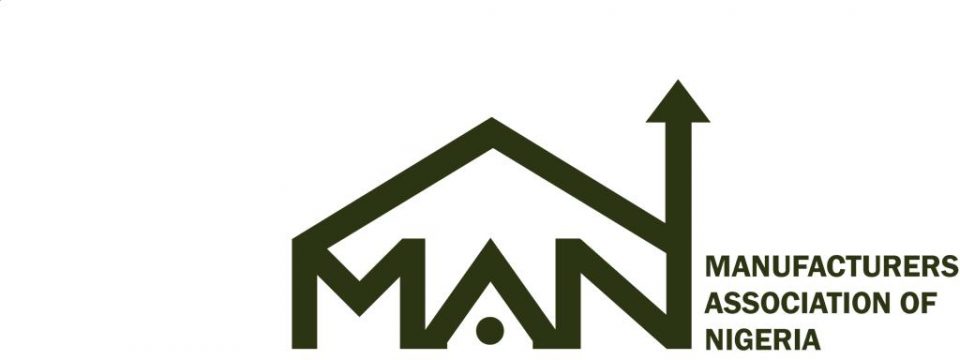Photo caption: MAN logo
By Charles Okonji
The Manufacturers Association of Nigeria (MAN) has stated that the 14 percent tariff recently imposed by the President of United States of America, Mr Donald Trump could wipe out between N1 to N2 trillion annually from the expected bilateral earnings of over N9.59 trillion.
According to the Director General of MAN, Mr. Segun Ajayi-Kadir, who stated this on MAN position, noted that the tariff is counterproductive to Nigeria’s industrialization agenda.
Ajayi-Kadir pointed out that the newly imposed tariff compromises the long-term goal of achieving export diversification under platforms such as the African Continental Free Trade Agreement (AfCFTA).
Tje MAN DG said; “Undoubtedly, the United States remains one of Nigeria’s most significant trade partners, accounting for approximately 7 percent of its non-oil exports. In 2024, bilateral trade between Nigeria and the US stood at N9.59 trillion, representing 6.9 percent of Nigeria’s total trade volume.
“Of this, Nigerian exports to the U.S. amounted to N5.52 trillion, while imports from the U.S. stood at N4.07 trillion.
The new tariff regime directly threatens this trade dynamic, particularly in a year when Nigeria is projecting an ambitious N55 trillion budget and facing the downward trend in global crude oil prices, which have already fallen below the government’s benchmark of $75 per barrel.
“The tariff hike, therefore, comes at a vulnerable moment when the country is just recovering from the impact of the government policy mix that has had negative effects on the manufacturing sector.
“Nigeria’s manufacturing sector, which contributed 8.64 percent to the country’s GDP in 2024, is one of the most predisposed sectors of the economy when it comes to trade policy shifts. The imposition of a 14 percent tariff on Nigerian exports significantly undermines the competitiveness of locally manufactured goods in the U.S. market.”
He noted that MAN members who are exporters in Agro-processing, chemicals and pharmaceutical, basic metal, iron & steel, non-metallic mineral products and other light industrial manufacturing rely heavily on the U.S. for market access.
“With increased costs for American buyers due to the tariffs, demand for Nigerian products is expected to decline. For instance, processed agricultural goods such as cocoa derivatives, sesame seeds, and ginger, which have gained modest penetration in U.S. markets, are likely to witness a drop in export volume.
“Over the past decade, manufacturers have made concerted and strategic efforts to support the country’s transition from exporting raw commodities to semi-processed and finished goods.
“However, higher market-entry costs because of higher tariff on Nigerian products reduce the profitability of such investments, making it more attractive for firms to revert to exporting raw materials. This is counterproductive to Nigeria’s industrialization agenda and compromises the long-term goal of achieving export diversification under platforms such as the African Continental Free Trade Agreement (AfCFTA).
Moreover, the implications on employment in the manufacturing sector are dire.
“As export revenues fall, many companies may reduce their production scale or downsize their workforce to cut costs. Contract manufacturers, small-scale industrialists, and firms operating in special economic zones targeting the U.S. market are likely to be worst hit. This could lead to job losses at a time when the national unemployment rate remains high, and youth underemployment continues to pose a socio-economic threat.”




